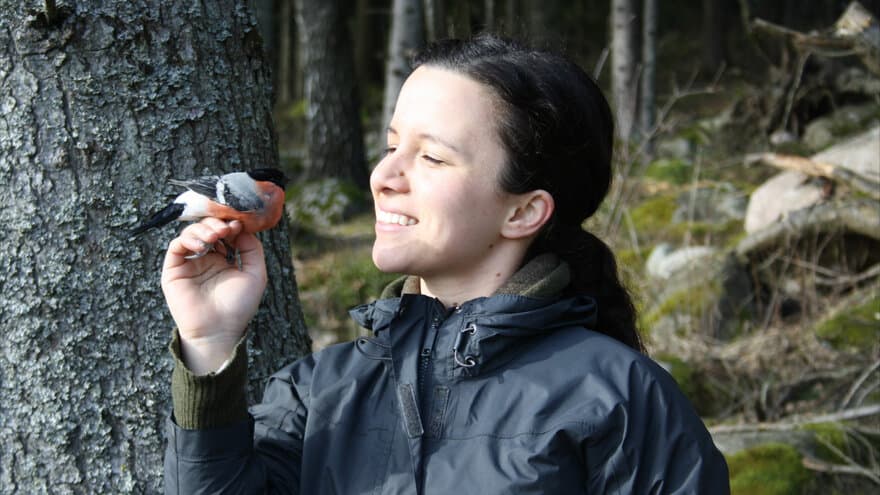Julie Percival has a Master’s Degree in Ecology. She is now working as an Information Advisor at the Department of Conservation in Wellington, New Zealand.
Could you tell us a little about your current job?
I’m currently working as an Information Advisor at the Department of Conservation (DOC), which is the leading government organisation responsible for conserving New Zealand’s natural and historic heritage. A big part of my role is providing advice and support on Information Management practices, which include: information access and research support, organisation of information, and information searching. Our team just finished a big rollout of a new system, which meant that I had the opportunity to travel across the country giving training workshops and meet some of the amazing staff at other offices.
Why did you choose to study at NMBU?
I had been living in Bergen, Norway for a year before deciding to apply for a Master’s in Norway and I had heard about NMBU from an Australian friend who just finished her Master’s in Development Studies. When I saw the ecology programme and the diversity of courses available I knew I wanted to apply.
My Bachelor’s degree is in Environmental Planning and Geography, and I wanted to combine this with a natural science degree and pursue my interest in conservation ecology. The ecology master’s programme looked like it offered an interdisciplinary approach to understanding the challenges in both natural and human environment.
How have you benefited from your degree?
Finishing a Master’s degree, doing fieldwork, and writing a thesis encourages you to think about issues from different angles and encourages you to put your ‘critical thinking’ hat on. It hones your skills in analysis and writing – which I think is valuable in any job (and probably just general life skills).
I had an amazing opportunity to spend six-weeks in northern Sweden where I studied Ortolan buntings (a handsome bird species) and their habitat selection and foraging behaviour on forest clear-cuts. This gave me valuable fieldwork experience – plus I also got to see reindeer, moose, foxes, badgers, woodpeckers and capercaillie! Data collection, statistical analysis, literature searching, and the ability to communicate technical language into plain English have all really helped me in the job I have now.

Any advice for future students?
- Get involved in activities outside of your studies. There are so many ways to meet fellow students (including Norwegians!). I was working as a Writing Advisor at the University’s Writing Centre and gained valuable work experience outside of my studies. I also volunteered on the Editorial Board of the NMBU Student Journal of Life Sciences and got to meet some amazing people, including people outside of my student programme.
- Apply for funding for your fieldwork early! There are quite a few opportunities to get financial support for your research. During the depths of winter when you’re deep in the writing process, having a research grant gives you the motivation and incentive to keep writing.
- If you’re an international student, try to make the most of being in beautiful Norway. Also try and find out what these words are (they will make your time in Norway fun): hyttetur, fjelltur, skitur, blåbærtur, and sopptur!

